After our almost magical previous day, Braden and I debated spending a second day and night in Portal. However, Braden had to be at his job in the Sierras in only five days, and we were already dropping some desirable hotspots from our visit list, so we “bit the birdseed” and packed up camp. Before we left the Chiricahuas, though, we had a major mission: to see one of America’s most sought-after birds, the Elegant Trogon. To be honest, I had seen trogons—including the famed Resplendent Quetzal—in Costa Rica, and Braden and I had both seen trogons again in Ecuador, although not the Elegant. The idea that this very exotic-looking bird actually bred in the U.S., however, made the quest almost irresistible. Fortunately, the trogon hangouts along Cave Creek are pretty well-known as at least two or three pairs breed there. We drove slowly without hearing any and then parked at a trailhead to continue our search on foot.
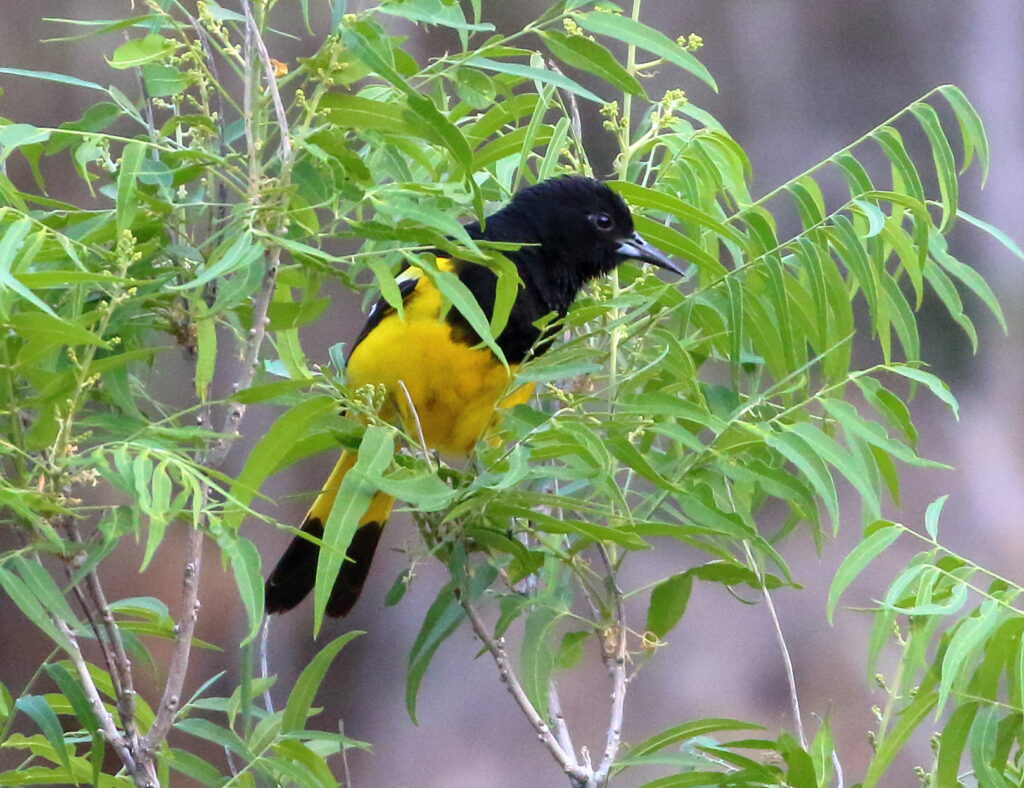
Almost immediately, we scored a great look at a brilliant male Scott’s Oriole, and not long afterward, our first good looks at Sulphur-bellied Flycatcher, a bird that immediately shot to the top of my favorite flycatcher list for its unique, bold looks and elusive behavior. We’d gone about half a mile, playing leapfrog with other trogon-hunters, when we heard a distinctive barking call behind us. “That’s it!” Braden exclaimed and I chased him back down the trail to find that the bird was easier to hear than see. I was creeping through some brush when Braden motioned vigorously. “Daddy, look up!” I did—to find myself staring at an orange-and-white butt. I quickly crept out to where Braden stood and, sure enough, there perched the trogon in full glory. The bird sat in a way not conducive to great photos, but we were nonetheless thrilled, and Braden went to retrieve the other trogon-hunters, who “oohed” and “ahed” appropriately.
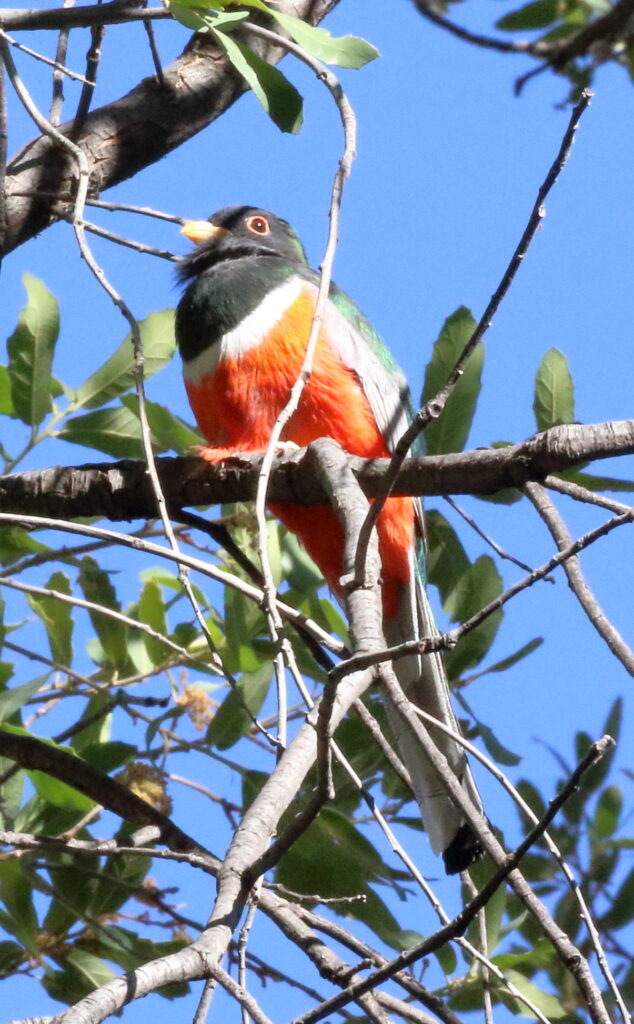
After a quick stop at one of the town’s feeder stations, we left Portal via New Mexico and headed toward our next Arizona destination, paralleling the border. Seeing the border again after six years proved a shock. When we had visited in 2016, the border remained “wall-free”. We had observed low vehicle barriers and perhaps some barbed wire, but little that would impede wildlife. This time it was a much different story as an ugly steel barrier stretched from horizon to horizon, an all but impenetrable obstacle erected with little or no thought to the many animals that migrate back and forth through the desert. That, of course, is not to mention the human toll of the wall and the dishonest politics of blame and xenophobia that led to its creation.
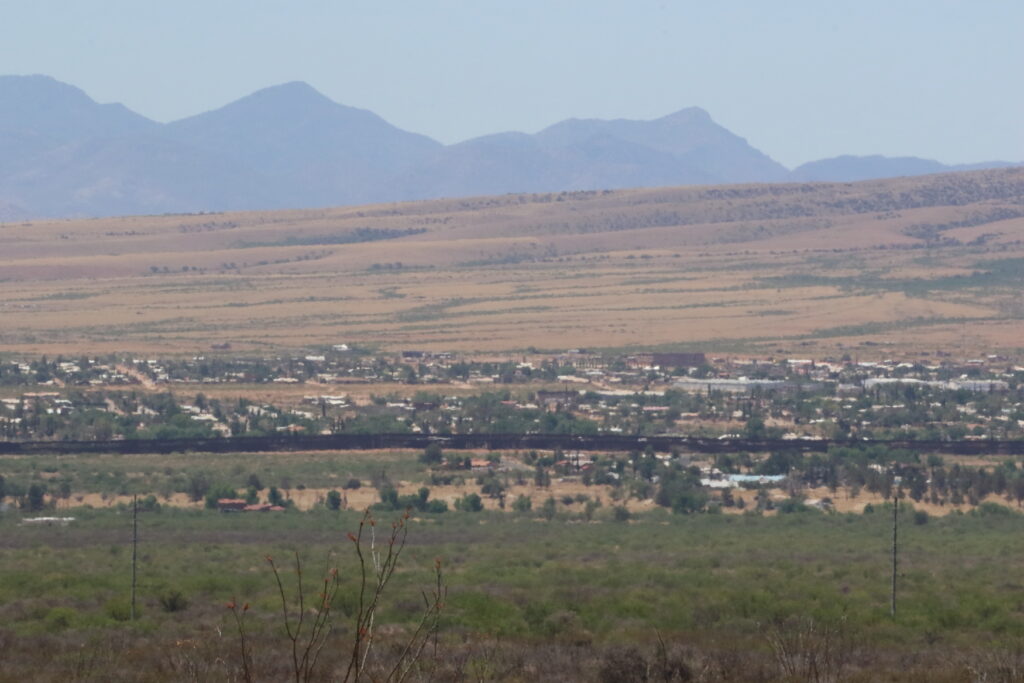
Pushing on, we stopped for lunch in Sierra Vista, by-passing world-famous Ramsey Canyon (sorry, Nick!), and proceeded to a destination highlighted in the movie The Big Year: Patagonia. By now, our first real Arizona heat had begun to set in, but we stopped twice, first at the Arizona Birding Tours feeders and then at the wonderful oasis of Tucson Audubon’s Paton Center for Hummingbirds. And yes, we did see hummingbirds! Violet-crowned and Broad-billed were the stars, but Anna’s and Black-chinned also availed themselves of our attention.
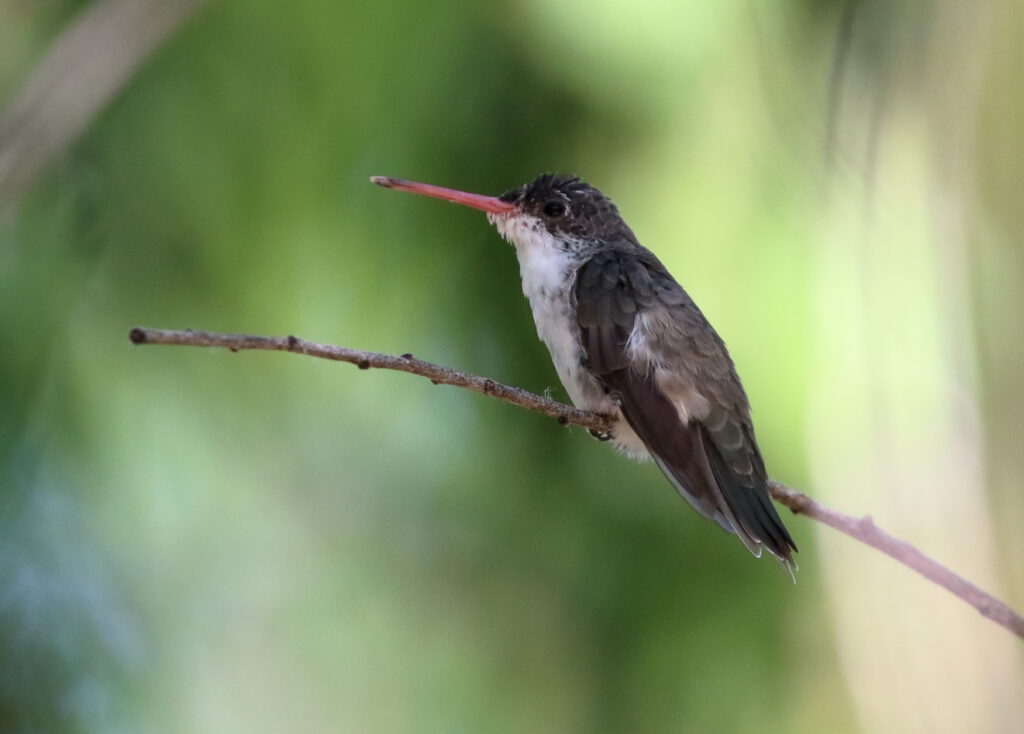
Both locations also proved a magnet for other Arizona staples including Gila and Ladder-backed Woodpeckers; Blue Grosbeaks; Bewick’s Wrens; Hooded Orioles; and most surprising, Yellow-breasted Chat. However, by late mid-afternoon, the effects of four days of non-stop travel and birding were starting to tell on us, and we decided to take the night off at an air-conditioned hotel in nearby Nogales. We needed the rest, and we also had to make an important decision—how to spend our last full day in Arizona!
Braden’s Big Year Count at the end of the day: 386! (Beginning of year goal: 400)
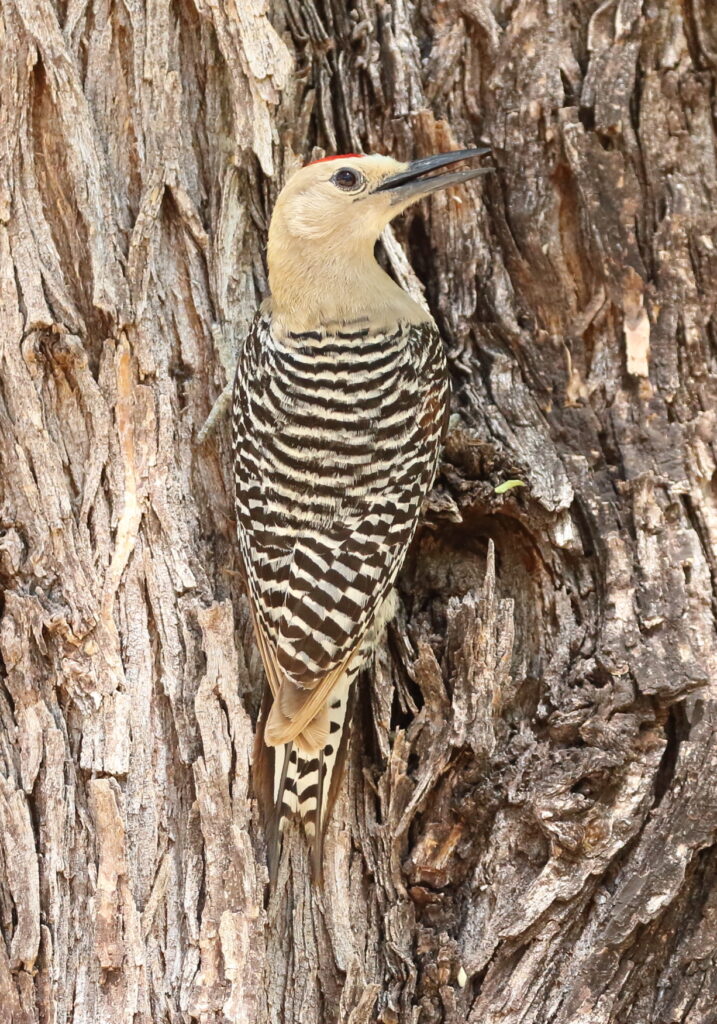
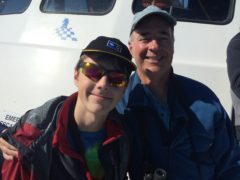
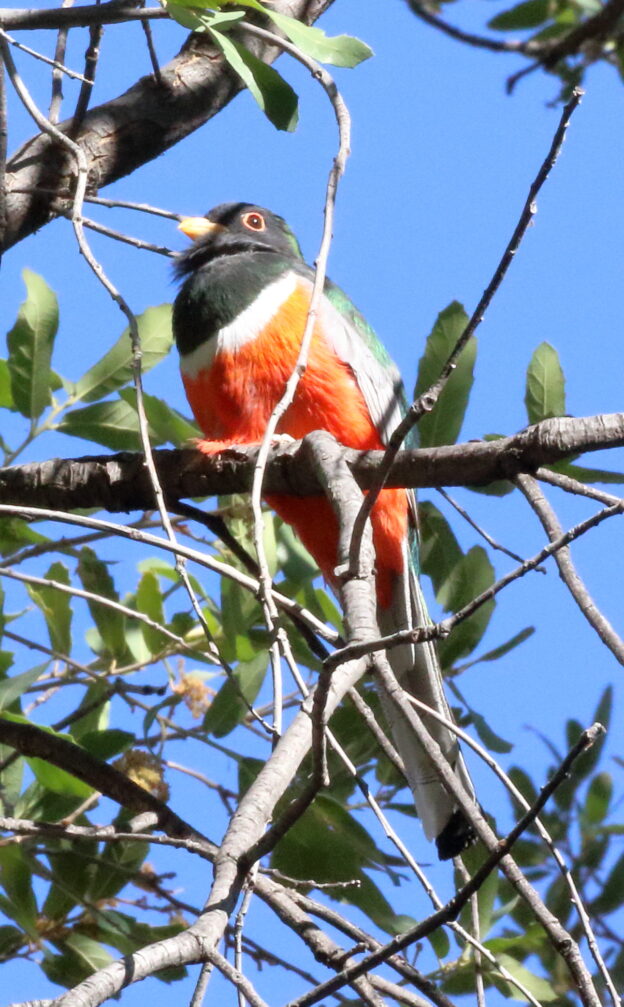
Trogolicious! What a score. I looked up Sulphur-bellied. Another cool bird. Sounds like a superb spring visit to southern Arizona.
It was–mandatory for anyone who loves birds! Thanks for reading, Rog!